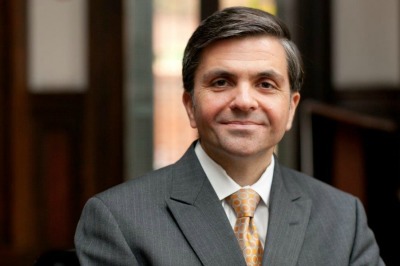Sojourners Critique of Christian Right Shows What's Wrong With Christian Left

This Stephen Mattson essay in Jim Wallis' Sojourners essentially chides religious conservatives for loving power over people, as they exploit Romans 13 to justify wielding the sword in defense of nationalism, hyper patriotism, greed, sexism, xenophobia, racism, deporting immigrants, defunding poverty programs, withholding health care, and overall sputtering of hatred.
So:
"When Christians love political power more than people, instead of exuding love, joy, peace, happiness, and self-control, they spew hate, fear, war, bigotry, and unrestraint."
And:
"When Christians love political power more than people, "Christianity" becomes a campaign strategy to gain more votes instead of a transformative faith that draws people closer to God and the rest of humanity."
Plus:
"When Christians love political power more than people, Christianity is replaced by Christendom, where the supernatural power of God is rejected for the worldly power of faith-based organizations, institutions, and politicians."
And:
"When Christians love political power more than people, they simply stop being Christ-like."
Then concluding:
"For American Christians — especially those privileged to hold political, economic, and social power — these are often hard truths to accept, but we must recognize the reality that the Christian faith can be hijacked and turned into something God never meant it to be. Far more important than whether we're a Democrat or Republican is whether we're actually following Jesus and loving everyone around us. Because What good is it for someone to gain the whole world, yet forfeit their soul? (Mark 8:36)"
So there's the deplorable conservative Christian path, dripping with hypocrisy and blood. And then there's the pure path of Jesus.
What does that pure Jesus path look like politically? For Sojourners across decades it has been a larger welfare and regulatory state, no military, and a government that, without using "violence," still imposes a strict egalitarian vision on the whole of society. Sojourners founder Jim Wallis and his followers have invested many years in pursuing political influence and power to enact this agenda that supposedly heeds the Gospel.
Mattson essentially accuses conservative Christians of succumbing to the Satanic offer of worldly dominion that Jesus rejected. But is the Religious Left absolved for grasping political power because its agenda is reputedly more generous? Do religious liberals ever err in their promotion of ever larger more powerful government? When did Jesus, or the Apostles or prophets, make this statist demand?
And why should a people for whom patriotism and nationalism are taboo cooperate in constructing an ever larger superstate to micromanage their society? What social glue binds them together in this project? And since borders and militaries are taboo, how will this project be indefinitely sustained?
Particularly noteworthy is Mattson's complaint that religious conservatives want "morality and spirituality [to] become legislated and ... voted into being," with the "good news of God's love ... substituted for enforcing our preferred brand of religion."
But Sojourners et. al. advocate all sorts of legislation to enact their vision of a just society, based on their "preferred brand of religion," which is essentially a form of Christendom governed by a liberal Protestant Social Gospel.
Mattson's superficial commentary is too often what passes for Protestant and evangelical political theology in today's conversation. Its assumptions are entirely American, modernist, and fairly Manichaean, arraying children of light against children of darkness.
Instead of trashing the Christian Right and sacralizing the Christian Left, there should be greater acknowledgement of the commonalities between them, as they both seek a City on the Hill, while mostly ignoring historic Christian political theology about the state's divinely ordained but limited vocation.
And whatever the political limitations of conservative Christianity, it is at least rooted in an orthodox spiritual vitality that begins with care of the individual soul, not ambitiously sweeping political transformation, which often seems the Christian Left's community building priority.
Christian political engagement across the spectrum merits critique. But Mattson's dismissive and unserious caricature of the Christian Right teaches very little except what is wrong about much of the unreflective Christian Left.
Originally posted at Juicy Ecumenism.





























